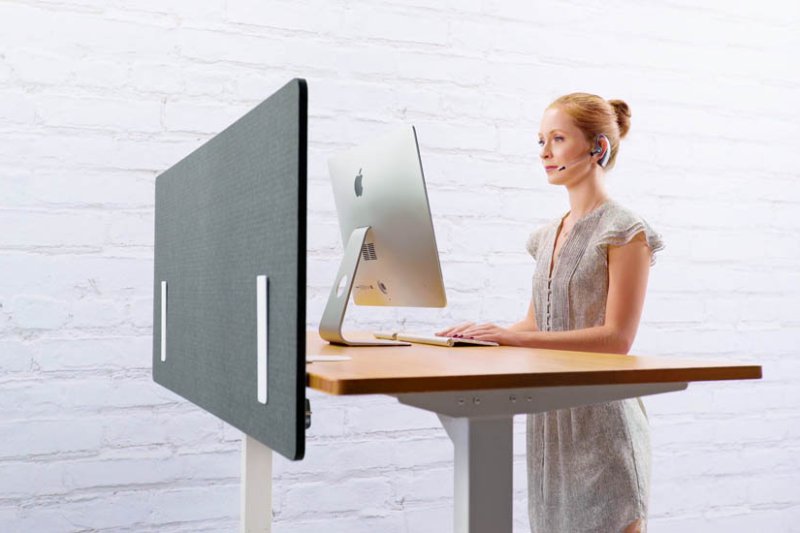Although health concerns about sitting too much are real, new research suggests that standing desks are not necessarily better for health -- they can affect blood flow, and discomfort from standing can affect work flow -- and researchers say people may be better if they just take a walk a few times a day. Photo by Uplift Desk
Feb. 27 (UPI) -- You'd better taking this news sitting down: Standing desks may not be the boon to health some thought they'd be.
Standing next to your desk can create "discomfort and deteriorating mental reactiveness," which can lead to other problems with health and productivity, researchers report in a recent study published in the journal Ergonomics.
The new finding is contrary to previous research suggesting that sitting at a desk for too long can lead to long-term health problems. Those findings in recent years led to companies offering "standing desks," as well as regular desks that lift into a standing position.
Workers have hoped standing would lead to weight loss, reduced back pain, better heart health and better productivity because they are more alert. The new study, however, contradicts that expectation, researchers say.
"Prolonged standing discomfort increased (all body areas), reaction time and mental state deteriorated while creative problem-solving improved," the researchers wrote in the new study. "Prolonged standing should be undertaken with caution."
For the new study, conducted at Curtin University in Australia, 20 people were observed during two hours of laboratory-based standing computer work. The researchers examined levels of discomfort and cognitive function, along with muscle fatigue, movement, lower limb swelling and mental state.
Over time, the researchers report, discomfort increased in all body areas, and the participants' mental state started to slow after about 75 minutes -- although "creative' decision-making was shown to marginally improve.
"The bottom line is that this expansion [of standing desks] has been driven more by commercial reasons than scientific evidence," said Alan Taylor, a physiotherapy expert at Nottingham University. said to The Telegraph. "But the evidence is catching up and it's showing there are some drawbacks."
Instead of using a standing desk, Taylor encourages people to take more walks during their work day, a concept that has been supported in previous studies. A small study at the University of Missouri in 2015, among others, recommended periodic 10-minute breaks for walking.
The latest findings also correlate with a 12-year study of more than 7,000 office workers, published in January, that found people who often stood at work were nearly twice as likely to develop heart disease as opposed to those that sat more often.
"The heart has to work a lot harder, the body has to work a lot harder, because you're battling gravity when you are standing up," said Alan Hedge, a human factors and ergonomics researcher at Cornell University.















